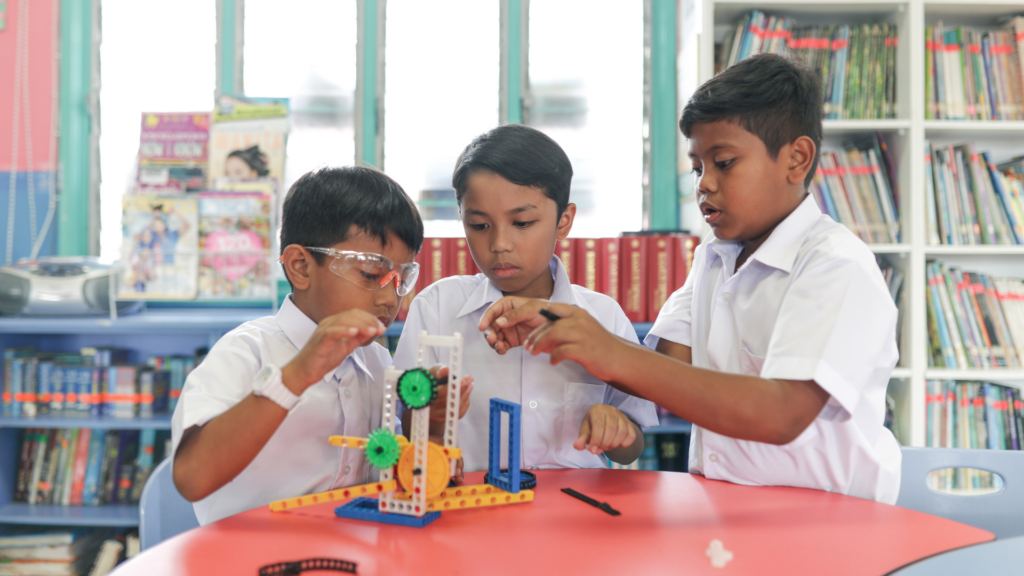Ready to invest in your child’s bright future?
Velammal Bodhi Campus
Empowering your child’s academic journey with exceptional support and guidance.


In CBSE schools teachers are trained to guide students through problems instead of giving quick answers. They give clues, ask guiding questions and help students figure things out for themselves. This process helps children stay curious and learn to solve things on their own.
Good teachers also model logical thinking by showing how they approach a task or break down a big idea into small steps.
Students who build logical thinking early tend to do better in maths and science but the benefits go far beyond that. They become better readers, better at writing clearly and more confident when speaking.
They also learn how to deal with new problems whether it’s managing time, resolving a conflict or preparing for exams. Logical thinking makes learning smoother and decision making easier.
The CBSE syllabus builds logic into lessons right from the start. It encourages students to ask questions, test ideas and solve real problems. These habits don’t just help with school, they help for life.
Velammal Bodhi Campus in Chennai follows the CBSE pattern and focuses on helping students think clearly and act wisely. Our classrooms support reasoning, careful thought and steady learning.
Want to see how logical thinking is built from the early years? Visit Velammal Bodhi Campus in Chennai. Book your school tour today.


In CBSE schools teachers are trained to guide students through problems instead of giving quick answers. They give clues, ask guiding questions and help students figure things out for themselves. This process helps children stay curious and learn to solve things on their own.
Good teachers also model logical thinking by showing how they approach a task or break down a big idea into small steps.
Students who build logical thinking early tend to do better in maths and science but the benefits go far beyond that. They become better readers, better at writing clearly and more confident when speaking.
They also learn how to deal with new problems whether it’s managing time, resolving a conflict or preparing for exams. Logical thinking makes learning smoother and decision making easier.
The CBSE syllabus builds logic into lessons right from the start. It encourages students to ask questions, test ideas and solve real problems. These habits don’t just help with school, they help for life.
Velammal Bodhi Campus in Chennai follows the CBSE pattern and focuses on helping students think clearly and act wisely. Our classrooms support reasoning, careful thought and steady learning.
Want to see how logical thinking is built from the early years? Visit Velammal Bodhi Campus in Chennai. Book your school tour today.
Ready to invest in your child’s bright future?
Empowering your child’s academic journey with exceptional support and guidance.

The educational philosophy at Velammal Bodhi, aims at providing a pragmatic, broad-based career-oriented education for the development of every child. Our goal is to equip every student with the skills and confidence they need to be better and make their mark in this digital world. We achieve this through a well-curated curriculum that includes academics, intellectual thinking, sports and extracurricular activities.